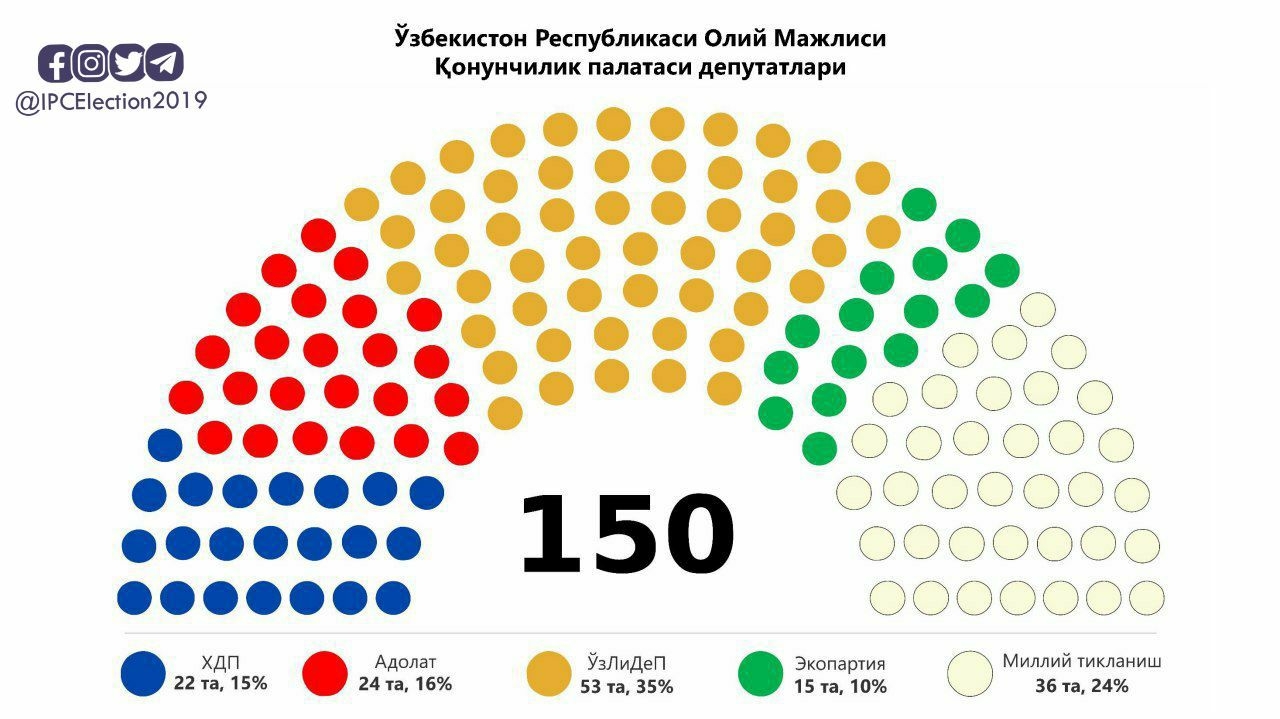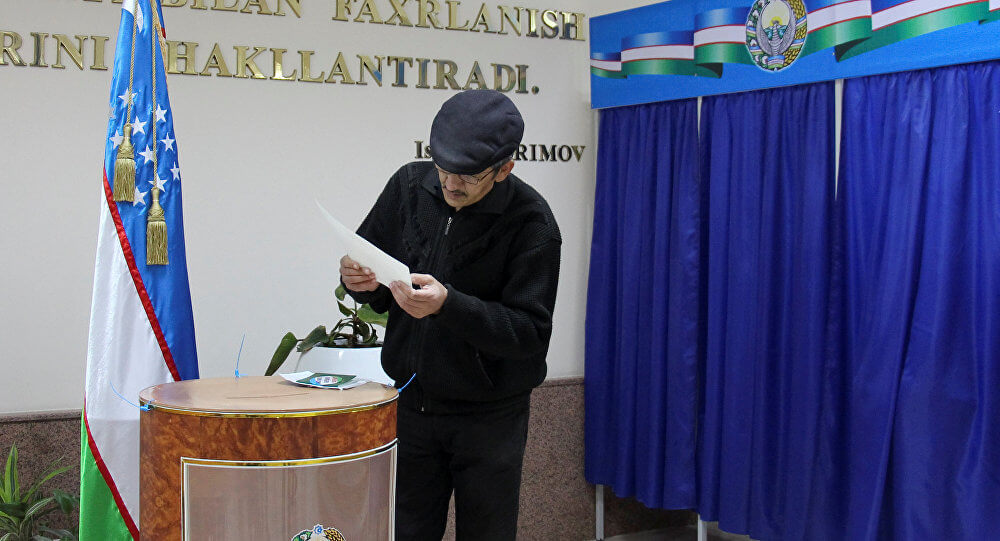On Sunday, Uzbekistan, the Economist’s country of the year, held the final round of elections for 150 seats of its lower parliamentary house.
The Uzbek Central Election Commission (CEC) announced the results as follows:

The Liberal Democratic Party of Uzbekistan, currently the ruling party, retained its majority with 53 seats.
36 seats were won by the Revival Democratic Party, 24 by the Justice Social Democratic Party, 22 by the People’s Democratic Party and 15 by the Ecological Party, according to the press service.
The first round of voting held on 22 December saw a turnout of 71.1% of over 18 million registered voters, while the second round saw 62.8% of over 3 million registered voters at the polls. The high turnout has been described by the CEC as a great achievement for the country.
CEC Chairman Mirzo-Ulugbek Abdusalomov’s speech yesterday confirmed that the elections were monitored by 825 international observers representing 10 international organizations and around 50 countries (including China), apart from over 70,000 local political representatives and 1,200 domestic and international media houses. The mission for the OSCE Office for Democratic Institutions and Human Rights directly monitored the election for the first time as well.
The new parliament has seen an increase in the number of elected women, which has doubled to 48 of the 150 seats. The average age of MPs is 46.
In accordance with Article 6 of Uzbekistan’s law “On the Cabinet of Ministers of the Republic of Uzbekistan”, the Liberal Democratic Party now has the right to nominate a Prime Minister, according to an announcement made on Abdusalomov’s Telegram channel.
744 candidates contested the election, representing five parties “loyal” to the current reformist President Shavkat Mirziyoev, who, while unaffiliated to any party, was nominated by the Liberal Democrats in the 2016 election.
The Erk Democratic Party was banned from contestation and its leader Muhammad Salih remains in exile, sparking international criticism for the lack of political opposition in parliament.
Image Source: Sputnik News

